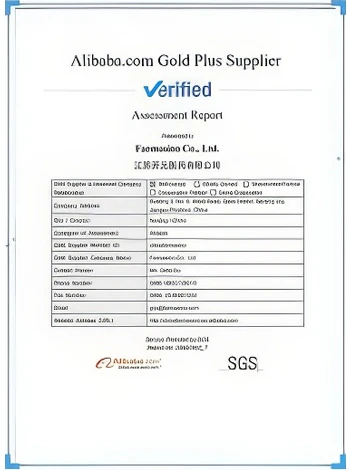



Mono Potassium Phosphate Fertilizer Nutrient Analysis and Application Guide
Understanding Mono Potassium Phosphate A Closer Look at Its Role in Agriculture
Mono potassium phosphate (MKP), scientifically known as KH2PO4, is a crucial fertilizer that has garnered attention in modern agriculture due to its unique properties and benefits. With a nutrient composition of 0-52-34, it contains 52% phosphorus (P) and 34% potassium (K) but no nitrogen. This distinctive formulation makes MKP particularly valuable in specific agricultural applications, offering growers a potent means to enhance crop production and improve soil health.
Nutritional Benefits
Phosphorus and potassium are two of the three primary macronutrients essential for plants, the third being nitrogen. Each of these nutrients plays a vital role in plant growth and development. Phosphorus is integral to the process of photosynthesis, the formation of DNA and RNA, and energy transfer through ATP (adenosine triphosphate). It significantly influences root development, flowering, and fruiting, often leading to better yields and improved crop quality.
Potassium, on the other hand, helps in regulating various physiological processes, including enzyme activation, photosynthesis, and water uptake. It enhances plant resilience against diseases and environmental stress, such as drought and salinity. When combined in MKP, these nutrients work synergistically to promote healthy and robust plant growth.
Application Versatility
One of the hallmark features of MKP is its solubility in water, which makes it easy to incorporate into various fertigation systems, hydroponics, and foliar applications. This high solubility allows for rapid nutrient uptake, ensuring that plants receive the necessary elements when they need them most, especially during critical growth stages such as flowering and fruit set.
MKP is especially beneficial for crops that have high phosphorus and potassium needs. This includes fruits, vegetables, and flowering plants. Applying MKP can significantly enhance the quality and marketability of these crops, as well as boost their yield potential.
Soil Health and Sustainability
mono potassium phosphate 0-52-34

In addition to providing essential nutrients, MKP also plays a role in maintaining and improving soil health. The application of phosphorus and potassium is vital for building soil fertility over time. MKP can help restore nutrient balance in soils that have been depleted through continuous agricultural practices. Moreover, using MKP in a sustainable manner helps reduce the environmental impact associated with over-fertilization and runoff, which can contaminate water supplies and disrupt local ecosystems.
Precision Agriculture
The trend towards precision agriculture has transformed how farmers approach fertilizer applications. MKP's precise nutrient formulation allows for efficient use in nutrient management programs. This means farmers can target specific crops and growth stages, applying the exact amount of nutrients needed to maximize productivity while minimizing waste. Such targeted approaches not only enhance crop outputs but also promote sustainable farming practices.
Economic Impact
From an economic perspective, the use of MKP can lead to significant savings for farmers. By optimizing nutrient use, farmers can reduce input costs while simultaneously increasing yields. This economic benefit is especially critical in an era where farmers face rising costs and pressures to maintain profitability.
Furthermore, the enhanced crop quality that results from effective MKP application can lead to better market prices and greater consumer acceptance, ultimately contributing to a farmer's bottom line.
Conclusion
In conclusion, mono potassium phosphate (0-52-34) stands out as a versatile and beneficial fertilizer in modern agriculture. By providing essential phosphorus and potassium, MKP supports plant health, enhances crop yields, and promotes sustainable practices. Its ease of application and compatibility with modern agricultural techniques make it an invaluable tool for farmers aiming to optimize their production while safeguarding the environment. As agriculture continues to evolve, the role of effective nutrient management tools like MKP will undoubtedly remain integral to the industry's success. Whether in conventional farming or innovative methods like hydroponics, MKP will continue to contribute to the growth and sustainability of crops around the globe.
-
Why Sodium Persulfate Is Everywhere NowNewsJul.07,2025
-
Why Polyacrylamide Is in High DemandNewsJul.07,2025
-
Understanding Paint Chemicals and Their ApplicationsNewsJul.07,2025
-
Smart Use Of Mining ChemicalsNewsJul.07,2025
-
Practical Uses of Potassium MonopersulfateNewsJul.07,2025
-
Agrochemicals In Real FarmingNewsJul.07,2025
-
Sodium Chlorite Hot UsesNewsJul.01,2025










